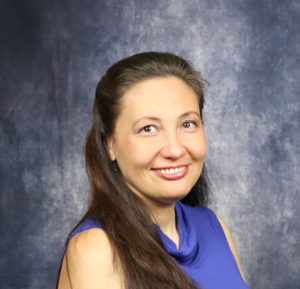FR8relay has received a $206,468 Small Business Innovation Research (SBIR) Phase I award from the U.S. Department of Energy.
The Bentonville-based company is developing mobility software that pools shipments and matches drivers with trailers and cargo in a relay model to ensure equipment and cargo keep moving while returning drivers home daily. This project responded to DOE’s research topic focused on novel mobility technology solutions that increase energy productivity for individuals and businesses.


ASBTDC Assistance
FR8relay has engaged the Arkansas Small Business and Technology Development Center for SBIR application development services since July 2020. In 2021, the team was awarded a $100,000 SBIR grant from the U.S. Department of Agriculture.
Rebecca Todd, ASBTDC’s innovation specialist, and Catherine Corley, a business consultant in ASBTDC’s Fayetteville regional office, worked closely with the company on its DOE proposal.
“Rebecca Todd, Catherine Corley, and the ASBTDC were incredibly supportive in the development of this proposal through proposal review, strategic brainstorming, and market research,” said CEO Aaysuh Thakur.
Reducing Inefficiency, Improving Quality
Although the United States relies on trucking to move 72.5% of its freight, the current model leads to wasted fuel, mismanaged capacity, and an exhausting job for drivers. Combined, these inefficiencies cost over $8 billion annually and compromise the sustainability of this crucial industry.
“The conventional point-to-point long-haul trucking model, coupled with federal Hours of Service regulations, cause equipment and cargo to spend as much as half the shipping time idling roadside,” said Thakur. “This contributes 48-64 tons of wasted carbon-based emissions and 3,500-4,500 gallons of wasted diesel fuel per truck annually.”

Freight capacity limitations contribute to these emissions while creating an unsustainable work environment for long-haul drivers. A significant portion of truckers’ driving time is unpaid, “wasted” miles, creating a mentally and physically exhausting profession with limited financial payoff.
Arkansas has the highest percentage of private-sector employees working in the trucking industry, according to the Arkansas Trucking Association.
FR8relay’s novel software could reduce emissions and increase energy productivity and truck utilization. Because the system uses a relay model, it can slash drivers’ wasted road hours dramatically, reduce turnover, and create economic development opportunities for distressed communities along major trucking corridors.

“The relay model presents a compelling alternative to the conventional point-to-point method by eliminating the unnecessary truck idle time built into supply chains,” said COO Deme Yuan. “This technology is supported by a machine learning-based predictive analytics module that anticipates day-to-day relay disruptions and recommends mitigation strategies.”
The FR8relay team developed this software through a rigorous customer discovery process involving over 200 stakeholders.
“The concept of relay trucking is not foreign to carriers, but the scalable execution of a relay system within the real world complexities of trucking is what they are all waiting to see before adopting such a model,” Yuan said.
Advice for SBIR Applicants
Thakur recommends the DOE Phase 0 program and the resources at the ASBTDC to prospective SBIR applicants.
“Preparing a proposal is a lot of work and calls for attention to many specific requirements. Enlisting these excellent support systems will go a long way to making sure your proposal is not disqualified for a preventable mistake, and to increasing the chances that your world changing innovation is communicated clearly to SBIR reviewers,” he said. “Rebecca and Catherine are both amazing!”